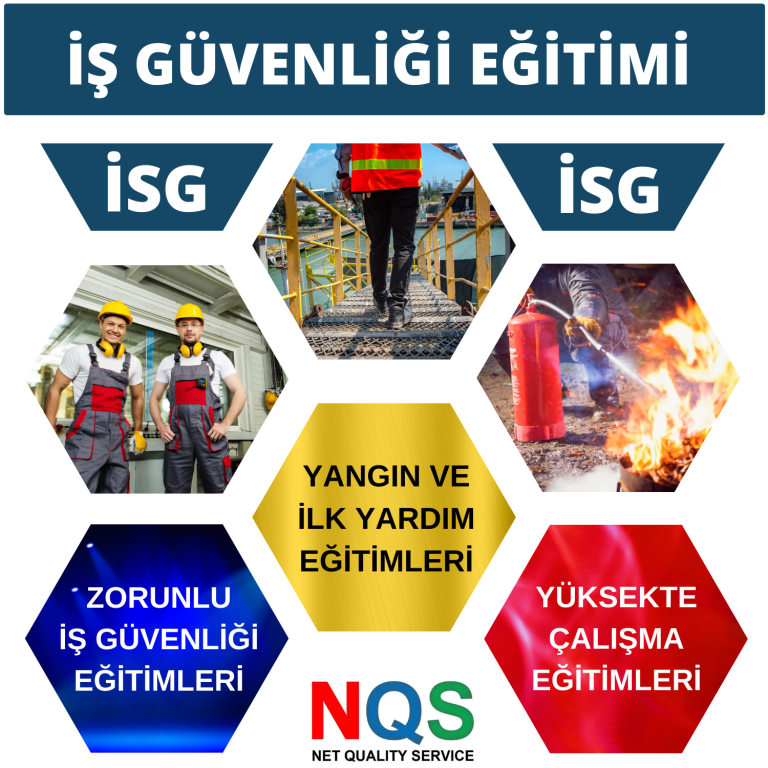
Karşınızda NQS Net Quality Firmasının Kalibrasyon Eğitim ve Denetim Ekibi

Şu anda İngiltere, Avrupa ve ABD otomobil endüstrisinde neler oluyor?
Neredeyse Carmageddon gibi hissettiriyor.
Ve birçok insan Brexit gibi şeylerden, politik müdahalelerden bahsediyor. Ama aslında daha büyük bir şey oluyor.
Bu yüzden sizi burada bazı veriler arasında derinlemesine bir yolculuğa çıkarmak istiyorum. Ve genel resimle başlayalım, tamam mı?
Bu size dünyanın en büyük otomobil üreticilerini, otomobil ihracatçılarını ne kadar ihracat yaptıkları açısından gösteriyor.
Yani Japonya, Almanya, Güney Kore ve son yıllarda ABD var. Ve şu anda gördüğümüz büyük değişim otomobillerdeki değişime dayanıyor. Yani içten yanmalı motorlu otomobillerden elektrikli otomobillere. Ve bunun en büyük yararlanıcısına bakın. Çin’e bakın. Sadece dünyanın dört bir yanına gönderdikleri otomobil birimleri açısından diğer herkesi nasıl geride bıraktığına bakın. Orada neler oluyor? Hikayenin bir kısmı, buradaki büyük resim, şu anda Çin’de elektrikli araba üretmek çok daha ucuz. Tamam, bu size bir VW i3 üretmenin maliyetini gösteriyor. Tamam, ID 3 Bu, Çin’de bulabileceğiniz belirli arabalarla karşılaştırılabilir bir araba. Bu da size farklı bileşen parçalarını gösteriyor.
Yani akü, şasi vb. Ve şimdi bunu bir BYD SEAL ile karşılaştıralım. Yani bu Çin’de benzer bir araba değil. Çin’de üretmek %29 daha ucuz.
Akü. Ama diğer parçalara da bakın.
Hepsi Çin’de daha ucuz. Ve bunun sonucu olarak daha ucuz arabalardan bahsediyorsunuz.
Ve neden daha ucuz? Kısmen uzmanlıktan kaynaklanıyor.
Kısmen de başka şeylerden kaynaklanıyor. Örneğin, Çin’de daha fazla devlet yardımına sahip olduğunuzu düşünün. Yani sübvansiyonlar, görünür ve görünmez.
Elbette İngiltere ve AB üreticilerine de giden sübvansiyonlar var.
Ancak Çin sübvansiyonları ve bu sektör genelinde, belirli bir şirkete bakmıyor, sektör genelinde önemli ölçüde daha yüksek, gelişmiş dünya olan OECD’de bulduğunuzdan dokuz kat daha fazla devlet yardımı var. Yani devlet yardımı var, hükümet yardım ediyor. Bu arada Çin’de de tarifeler var.
Avrupa’da dünyanın geri kalanından çok daha yüksek elektrik maliyetleri var. Aslında, bakın, tüm ülkeler arasında endüstriyel elektrik maliyetleri İngiltere’de en yüksek. Ve fabrikanızı nereye koyacağınızı düşünüyorsanız, bu gerçekten önemli çünkü bir araba üretiyorsanız maliyetlerinizin büyük bir bileşeni. Yani elektrik maliyetleriniz de daha yüksek, oysa Çin’de genellikle elektriğin çoğu kömürden geliyor ve bu çok daha ucuz. Şimdi, burada başka bir şey daha oluyor, bu da burada bahsettiğimiz endüstriyel mimarideki değişim türüyle ilgili.
Tipik olarak, tarihsel olarak ve bu size sadece bir arabanın bileşen parçalarını gösteriyor ve bu bir içten yanmalı motorlu araba ve bunların maliyetlerin ne kadarını oluşturduğunu. Motor genellikle inşa edilmesi en zor şey olmuştur. Motor inşa etmek gerçekten zordur, gerçekten, gerçekten zordur. Aslında, Çin tarihsel olarak motor inşa etmekte gerçekten zorlandı çünkü çok sayıda bileşen parçanız, çok fazla çalışmanız, çok fazla beceriniz var ve bu %21’e giriyor.
Ve aslında, bu açık ara en büyük kısım. Ancak, şimdi pillere bakın. Buradaki tam oranı değiştiriyor. Pil açık ara en büyük maliyet haline geliyor, %39, hatta daha fazlası. Ve bir pil yapmak, bir motor yapmaktan çok farklı bir beceridir. Bu işleri alıp oraya kaydıramazsınız. Ve bu, Avrupa’da ve hatta ABD’de araba yapan insanlar için gerçek bir bilmecedir. Ve şu anda elektrikli araba yapma konusunda Çin’in neden baskın olduğunun açıklamasının bir parçasıdır. Küresel pazarın %65’i Çinli.
Ancak ilginç olan bunun altına baktığınızda, tedarik zincirine baktığınızda, kaç kişinin pil ürettiğine baktığınızda, pil pazarının %82’sinin Çin olduğudur. Daha derine bakın. Pillerin içine giren bileşenlere bakın. Bunlar Çin tarafından daha da fazla domine ediliyor. Yani anotlar, katotlar, %87, %96’sı anot Çin’de üretiliyor. Görüyorsunuz, bu Çin’in hakimiyeti. Yani bir pil üretiyor olsanız bile, bileşenlerinizi yine de Çin’den almak zorundasınız ve bu böyle devam ediyor.
Yani kimyasallar büyük ölçüde Çin’de üretiliyor, kırmızı çubukları görmediğiniz tek alan, Çin oranları, kırmızı çubukları bu kadar yüksek görmediğiniz yer, madencilik çünkü lityum ve kobaltın yerden nereden çıktığını kontrol edemiyorsunuz. Bu jeolojik bir sorun. Odaklanmaya değer bir şey daha var, bu da kısmen kimyalarla mı ilgili? Kısmen Avrupalıların seçtiği pil türleriyle mi ilgili?
Şimdi, bir süre önce, AB ve bir dereceye kadar Çin dışındaki Asya’nın bazı bölgeleri, gerçekten uzun menzil sağlayan türden gerçekten yüksek enerji yoğunluklu pillerde uzmanlaşmaya karar verdiler. Ve burada belirli bir kimya türü var, nikel, manganez, kobalt. Bu yüksek enerji yoğunluklu şeyler. Çin düşük enerji yoğunluklu pillere odaklandı, biraz daha ucuz, biraz daha güvenli.
Ve Avrupa’daki çoğu insan, peki, neden uğraşıyorsunuz? Çünkü paranın olduğu yer burası. Ama şimdi olanlara bakın. Çin bu pilleri üretmede çok daha iyi olduğu için, bu farklı kimyada çok daha fazla büyüme görüyorsunuz. Ve AB’nin uzmanlaştığı pil türü, temelde duraklama döneminde. Buna bakın. Ve Çin’in büyüme alanı var. Yani görüyorsunuz, bugün bulunduğumuz yere sıçrama grafiğinde yol açan bir dizi farklı faktör var. Ama bulunduğumuz yer de hükümetlerin bu konuda bir şeyler yapmaya çalışması.
ABD, Kanada Çin EV’lerine %100 gümrük vergisi uyguluyor. Hindistan da yüksek gümrük vergileri uyguluyor. Türkiye ve AB de gümrük vergileriyle geldi. Gerçekten burada tek aykırı değer, çoğunlukla Japon malı satın alma eğiliminde olan Japonya dışında, bu yüzden yüksek gümrük vergilerine mutlaka ihtiyacınız yok, İngiltere. Çin EV’leri için normal tarife oranlarının hala %0 üzerinde olması, burayı şu anda Çin arabalarını satmak için dünyadaki en cazip ülke haline getiriyor, özellikle de 2035’te EV kuralının yürürlüğe gireceği düşünüldüğünde. Şu soruyu gündeme getiriyoruz: Bu, İngiltere otomobil endüstrisi için sonunda ne anlama gelecek?
VİDEONUN İNGİLİZCE METNİ:
What is going on with the UK, the European, the US car industry right now? It feels almost, you might say, like Carmageddon. And a lot of people are talking about things like Brexit, about political interventions. But actually, there’s something bigger going on. So I want to take you on a deep dive here through some of the data. And we’ll start with the big picture, OK? This is showing you the biggest car producers, car exporters around the world in terms of how much they’re sending out exports. So you’ve got Japan, you’ve got Germany, you’ve got South Korea, the US in recent years. And the big shift we’re seeing at the moment is down to the change in cars. So from internal combustion engine cars to electric cars. And look at the biggest beneficiary of that.
Look at China. Just look at how it’s leapfrogged everyone else in terms of the units of cars they’re sending out around the world. What is going on there? Well, part of the story, kind of the big picture here is, It is much cheaper right now to make electric cars in China. Okay, so this is showing you the cost of making a VW i3. Okay ID 3 This is the car that’s comparable to certain cars that you can find in China And this is showing you the different component parts. So the battery, the chassis, and so on. And now let’s compare that with a BYD SEAL.
So this is a not a similar car in China. 29% cheaper to make in China. The battery. But also look at the other parts as well. All of them cheaper in China. And the upshot of that is you’re talking about cheaper cars. And why is it cheaper? Well, partly it’s down to expertise. Partly it’s down to other things as well. So for instance, consider the fact that you have more state aid in China. So subsidies, visible and invisible. Certainly there are subsidies that go to UK and EU producers as well. But the Chinese subsidies, and this is across the sector, it’s not looking at a specific company, across the sector are significantly higher, up to nine times more state aid than you find in the OECD, which is the developed world. So you’ve got state aid, the government helping out.
You’ve also got tariffs in China as well, by the way. You’ve got power costs that are much higher here in Europe than they are elsewhere around the world. In fact, look, of all of the countries, the industrial power costs are highest in the UK. And if you’re thinking about where you’re going to put your factory, that really matters because it’s a big component part of your costs if you’re making a car. So you’ve got power costs higher as well, whereas in China, usually, A lot of the power comes from coal, and that’s a lot cheaper. Now, there’s also something else going on here, which is about the kind of change in industrial architecture we’re talking about here. Typically, historically, and this is showing you just the component parts of a car, and this is a combustion engine car, and how much of the costs they comprise. The engine has typically been the hardest thing to build. It’s really hard building engines, really, really hard. Actually, China’s really struggled to build engines historically, because you’ve got lots of component parts, a lot of work, a lot of skill goes into that 21%. And actually, that’s the biggest part by far.
However, now look with batteries. It changes the complete ratio here. The battery becomes by far and away the biggest cost, 39%, even more. And making a battery is a very different skill to making an engine. You can’t just take these jobs and shift them across there. And that’s a real conundrum for people making cars in Europe and, indeed, in the US. And it’s part of the explanation for why right now China is dominant when it comes to making electric cars. 65% of the global market is Chinese. But what’s interesting is when you look beneath that, look into the supply chain, look at how many people are making batteries, it’s 82% of the market for batteries is China. Look deeper. Look at the components that go inside the batteries. That’s dominated even more by China. So the anodes, the cathodes, That’s 87, 96% with the anode made in China.
You see, it’s Chinese dominance. So even if you’re making a battery, you’re still having to get your components from China and it goes on. So the chemicals largely made in China, really the only area where you don’t see the red bars, that’s Chinese proportions, where you don’t see the red bars as high, it’s mining because you can’t control where the lithium and the cobalt is actually coming out of the ground. That’s a geological issue. There’s one other thing that’s just worth focusing on, which is Is it partly about the chemistries? Is it partly about the types of batteries that Europeans chose? Now, a while ago, the EU, and to some extent parts of Asia outside of China, decided they were going to specialize in really high energy density batteries, the kind of thing that gives you really long range. And there’s a particular type of chemistry here, nickel, manganese, cobalt. This is the high energy density stuff. China focused on low energy density batteries, a bit cheaper, a bit safer. And most people in Europe were like, well, why are you guys bothering? Because this stuff is where the money is. But look at what’s happening now.
Because China’s got a lot better at making those batteries, you’re seeing much more growth in that different chemistry. And the type of battery that the EU specializes in, it’s basically plateauing. Look at that. And China’s got the growth area. So you see, it’s a whole range of different factors that have led to kind of where we are today with that leapfrogging chart. But where we are also is that governments are trying to do something about it. You’ve got the US, Canada imposing 100% tariffs on Chinese EVs. India as well, high tariffs. Turkey, the EU’s just come in with tariffs as well. Really the only outlier here, apart from Japan, which mostly tends to buy Japanese, so you don’t necessarily need as high tariffs, is the UK. Still 0% on top of the normal tariff rates for Chinese EVs, making this about the most attractive country in the world to sell Chinese cars right now, especially given you’ve got that EV rule coming in 2035. Raising the question, what in the end will this spell for the UK car industry?

Karşınızda NQS Net Quality Firmasının Kalibrasyon Eğitim ve Denetim Ekibi

NQS EĞİTİM TALEP
TÜRKİYE NİN EN BÜYÜK ÖZEL EĞİTİM ŞİRKETİYİZ
NQS NET QUALITY SERVICE EĞİTİM TALEP FORMU
Sizinle uygun olduğunuz zamanda irtibata geçilecektir.


egitim-talepleri-fmea-kontrol-plan-ppap-apqp-problem-cozme-kok-neden-analizi-3

kalibrasyon-turkak-logo-email telefon bilgisi-nqs kalibrasyon – iletisim-1
Egitim Talepleriniz için F-109 EĞİTİM TALEP FORMU nu da kullanabilirsiniz.



















































































